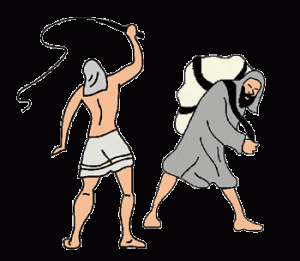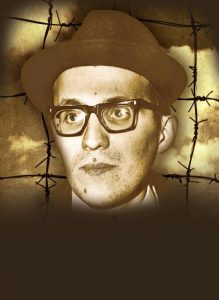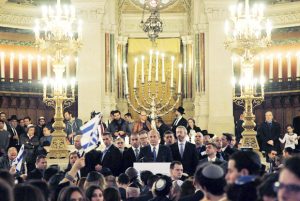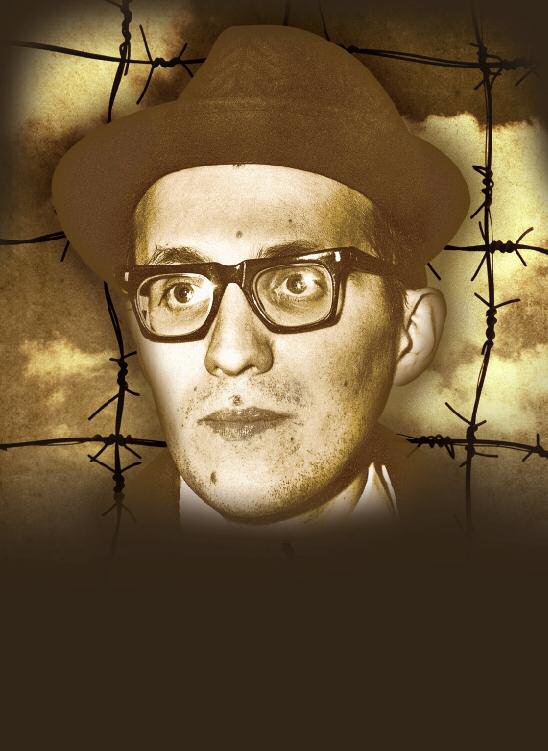Slavery, Psychology, and Bibi’s Or Hachaim: A Vort for Parshas Shemos
 British psychologist Steve Taylor describes a phenomenon he discovered in his research which he calls, SITE – “Suffering Induced Transformational Experiences”. Taylor found that individuals who went through painful experiences (medical, emotional, loss, etc.) would often emerge from them with a new state of being which included, “increased well-being, intensified perception, a sense of connection, improved relationships, a less materialistic and more altruistic attitude, decreased cognitive activity, and reduced fear of death”.
British psychologist Steve Taylor describes a phenomenon he discovered in his research which he calls, SITE – “Suffering Induced Transformational Experiences”. Taylor found that individuals who went through painful experiences (medical, emotional, loss, etc.) would often emerge from them with a new state of being which included, “increased well-being, intensified perception, a sense of connection, improved relationships, a less materialistic and more altruistic attitude, decreased cognitive activity, and reduced fear of death”.
Taylor’s discovery also explains the silver lining of our slavery in Egypt. In one of the most powerful pesukim in this week’s parsha, the painful abuse of the Egyptians is described: וְכַאֲשֶׁר יְעַנּוּ אֹתוֹ, כֵּן יִרְבֶּה וְכֵן יִפְרֹץ, But the more they afflicted them so did they multiply and so did they spread. On a simple level, the Torah tells us that in spite of the harsh treatment of the Jewish nation, they continued to increase in numbers.
 However, the Or Hachaim, commenting on the pasuk, tells us that this pasuk actually describes the mechanism of Taylor’s SITE long before he coined the term. כֵּן יִרְבֶּה וְכֵן יִפְרֹץ do not only connote growth in numbers, they also refer to becoming great and growing spiritually stronger. The Or Hachaim says that the pasuk is teaching us that the more painful and traumatic the affliction of the Egyptians to the Jews was, the stronger the Jewish nation grew in spirit and identity. Indeed, the Hebrews who came forth from Egypt had the greatest “Suffering Induced Transformational Experience” in history – they transformed into Jews. This type of transformation began in Egypt and has continued throughout Jewish history. Our survival for so many millennia is intimately tied to the incredible strength our people draws from the difficult chapters of our history. In fact, when Bibi Netanyahu spoke to the Grand Synagogue of Paris (skip to 10:50) , following the horrific terrorist attacks against the Jewish community, he actually quoted this pasuk and used it for this same message (I don’t think he realized he was being mechavein to the words of the Or Hachaim).
However, the Or Hachaim, commenting on the pasuk, tells us that this pasuk actually describes the mechanism of Taylor’s SITE long before he coined the term. כֵּן יִרְבֶּה וְכֵן יִפְרֹץ do not only connote growth in numbers, they also refer to becoming great and growing spiritually stronger. The Or Hachaim says that the pasuk is teaching us that the more painful and traumatic the affliction of the Egyptians to the Jews was, the stronger the Jewish nation grew in spirit and identity. Indeed, the Hebrews who came forth from Egypt had the greatest “Suffering Induced Transformational Experience” in history – they transformed into Jews. This type of transformation began in Egypt and has continued throughout Jewish history. Our survival for so many millennia is intimately tied to the incredible strength our people draws from the difficult chapters of our history. In fact, when Bibi Netanyahu spoke to the Grand Synagogue of Paris (skip to 10:50) , following the horrific terrorist attacks against the Jewish community, he actually quoted this pasuk and used it for this same message (I don’t think he realized he was being mechavein to the words of the Or Hachaim).
Yosef Mendelevitch, the famed prisoner of zion, spent years in the Soviet gulag. He recounted that at one point in his imprisonment he decided to start cutting kippa-shaped pieces of clothe from his uniform and put them on his head. Every time he did so he was severely beaten by the guards; but he would do it again nonetheless. It came to the point that he had holes all over his uniform from so many kippot. One day he heard the guards talking among themselves. The name Mendelevitch came up. One of the guards commented, “there is nothing we can do to him – he’s a free man already”.
 The stubborn ability of Jews to grow from their suffering was not only the secret to our freedom from Egypt, it is the key to our freedom for eternity. Only when we see our national and personal hardships as a part of a “Transformational Experience” to better, more altruistic people and a freer, more connected nation will we truly receive the blessing – כֵּן יִרְבֶּה וְכֵן יִפְרֹץ
The stubborn ability of Jews to grow from their suffering was not only the secret to our freedom from Egypt, it is the key to our freedom for eternity. Only when we see our national and personal hardships as a part of a “Transformational Experience” to better, more altruistic people and a freer, more connected nation will we truly receive the blessing – כֵּן יִרְבֶּה וְכֵן יִפְרֹץ

